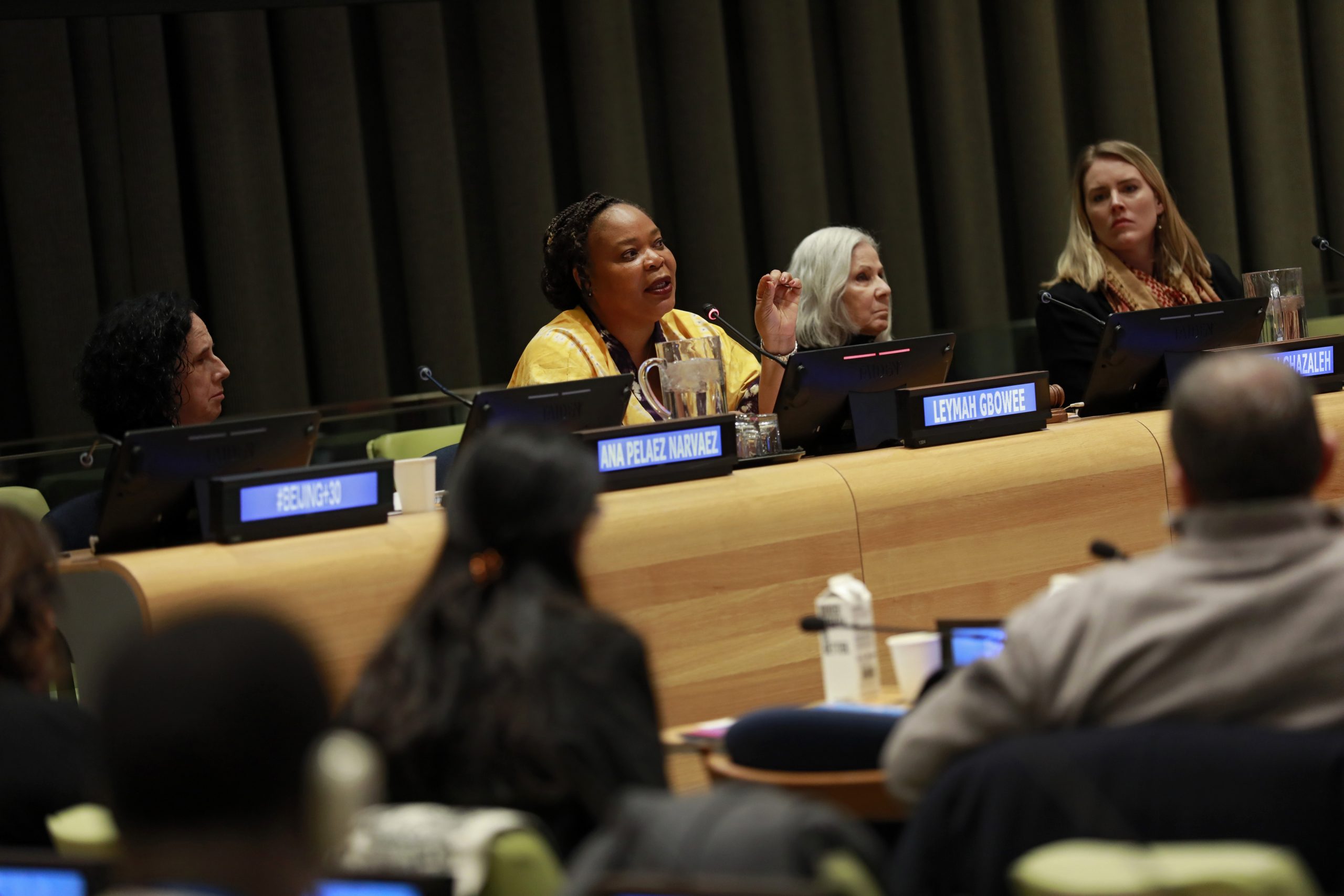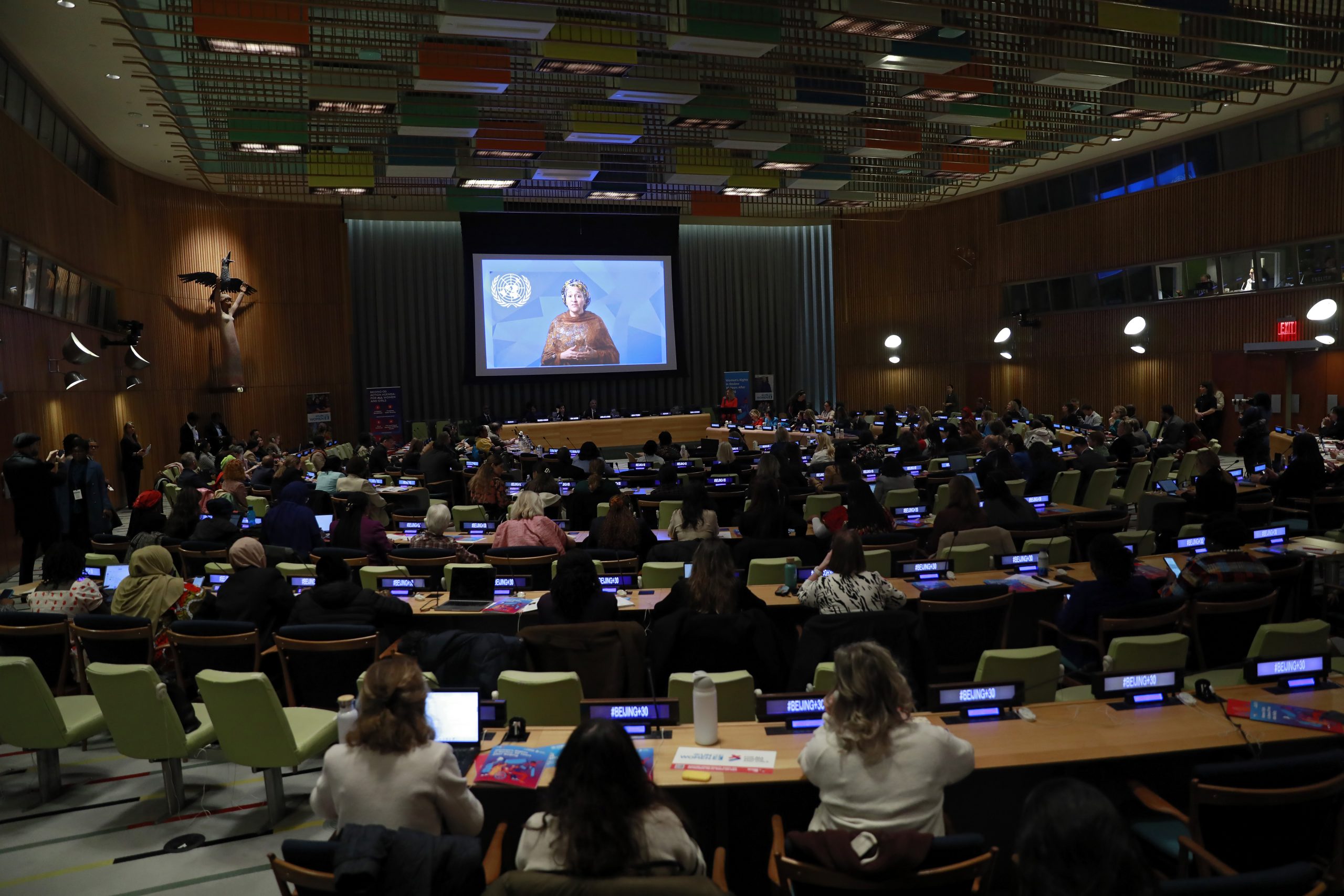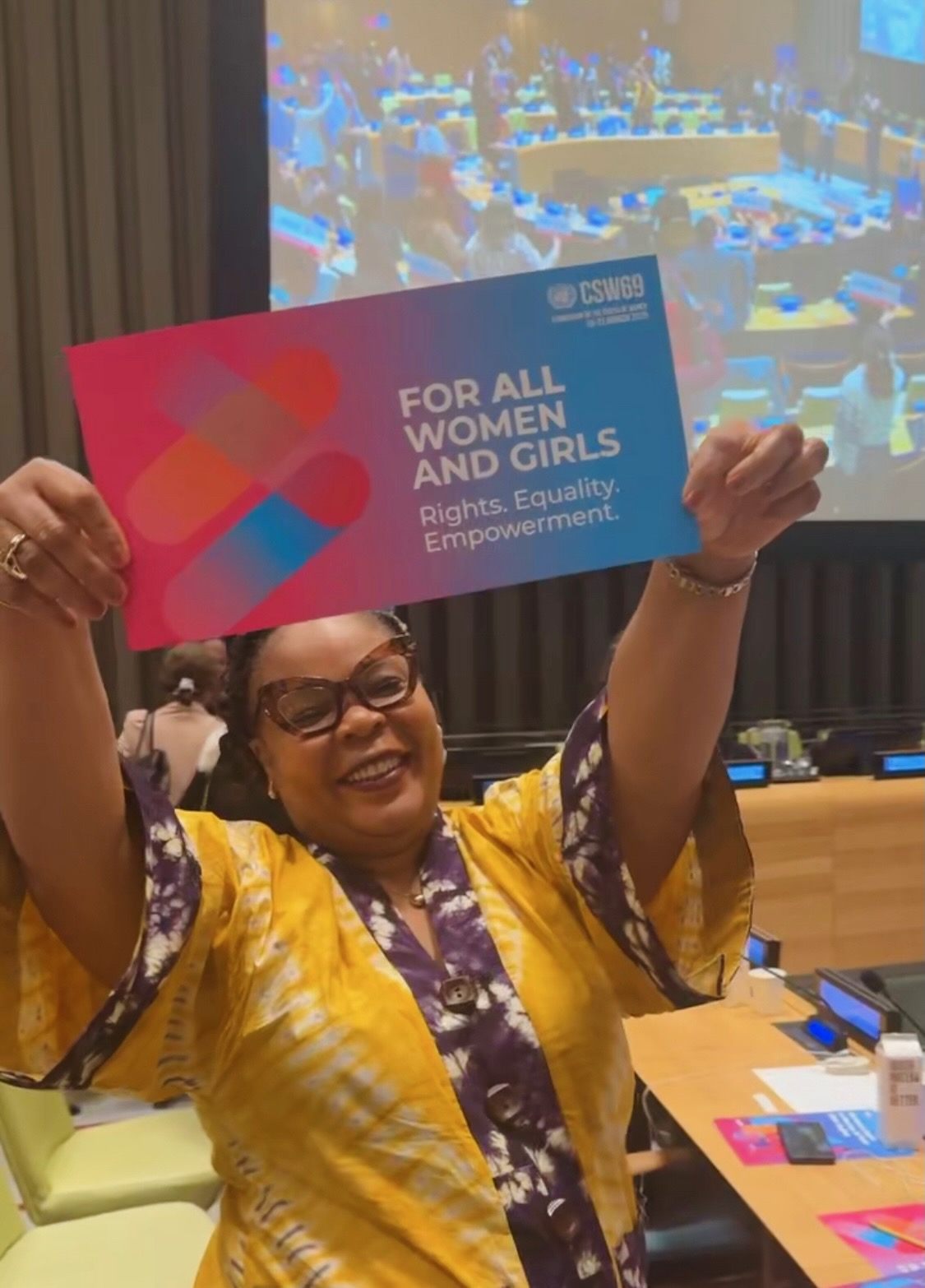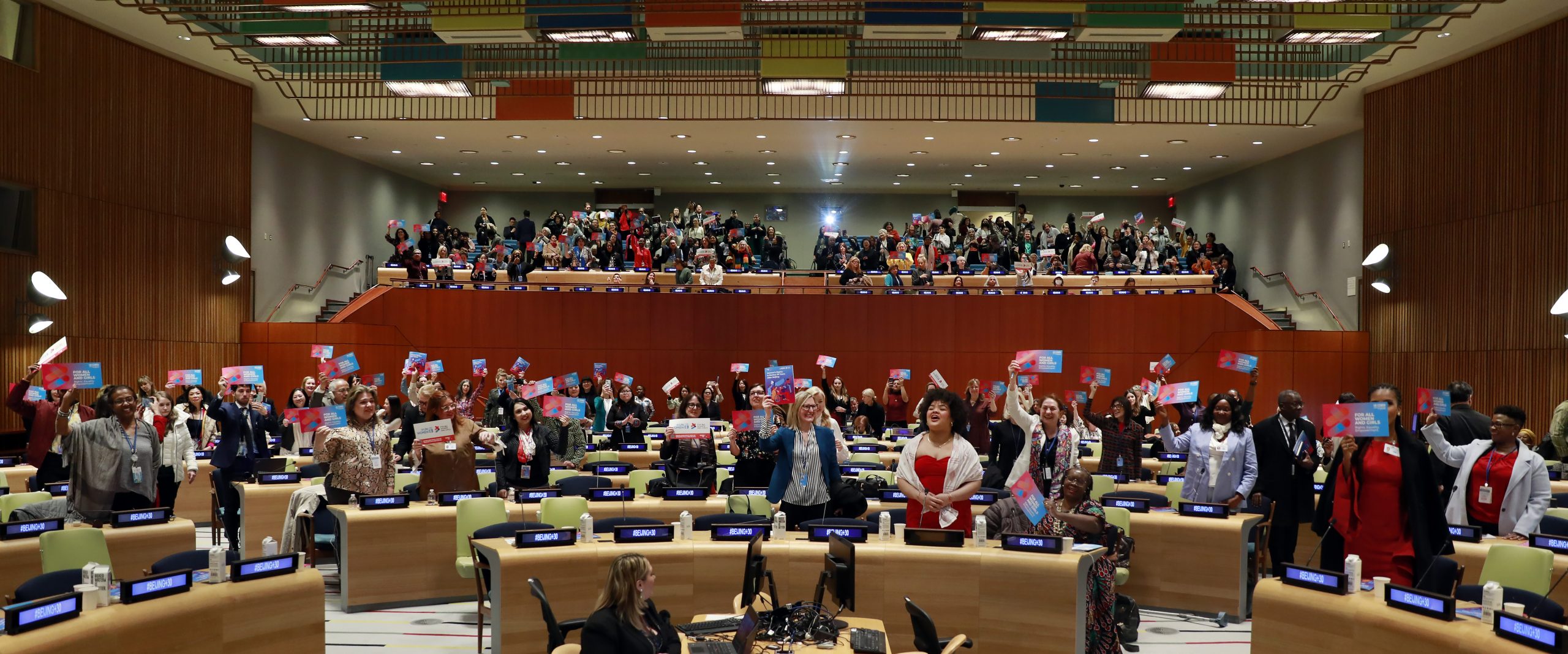Nobel Peace Laureate Leymah Gbowee, Executive Director of the Institute on Gender, Law, and Transformative Peace, spoke on peace and security during the 69th UN Commission on the Status of Women to inform accelerated policy action on global gender justice.

Ms. Leymah Gbowee, Executive Director of the Institute, gives remarks at the United Nations at the March 12, 2025.
Photo Credit: UN Women/Ryan Brown
On March 12, 2025, Nobel Peace Laureate and Institute Executive Director Leymah Gbowee delivered remarks at the at the global launch of Beijing+30 action agenda at the United Nations. UN Women hosted the high-level panel of leaders and experts at United Nations Headquarters during the 69th convening of the Commission on Status of Women (CSW69), which this year focused on the 30th anniversary of the 1995 Fourth World Conference on Women in Beijing.
The historic Beijing Conference is widely considered a turning point for the global agenda for gender justice, yielding the Beijing Declaration and Platform for Action, a leading global policy document on gender and human rights which was unanimously adopted by 189 countries. The CSW convening has brought together country and civil society representatives to conduct reviews of the Declaration and Platform for Action every five years, and this year’s conference brought about a new Beijing+30 action agenda to accelerate progress on gender justice.

Deputy Secretary-General of the United Nations, Amina Mohammed, speaks via video message at the March 12 event.
Photo Credit: UN Women/Ryan Brown
The March 12 flagship event, “For ALL Women and Girls: The Beijing+30 Action Agenda” convened global leaders and experts to discuss six action areas to more quickly and effectively fulfill the commitments made in Beijing and in the Sustainable Development Goals (SDGs). UN Women Executive Director Sima Bahous called upon those gathered at CSW to unite around the common purpose of gender equality and reigniting the spirit of the Beijing Declaration. She then welcomed remarks on the Action Agenda’s six action areas: 1. A Digital Revolution; 2. Freedom from Poverty; 3. Zero Violence; 4. Full and Equal Decision-Making Power; 5. Peace and Security; and 6. Climate Justice.
Speaking on Action 5, Peace and Security, Ms. Gbowee reflected on remarks she had made in the same UN hall 22 years prior, drawing upon on her leadership of the Women of Liberia Mass Action for Peace, which played a pivotal role in ending the country’s Civil War. She emphasized then and now that using a gender lens is vital for long-lasting peace and security.
“I sit here as a testament of a group of women who stepped out when their nation was at the point of destruction and did everything that they could to bring Liberia back,” Ms. Gbowee said at the United Nations. “And 22 years later, Liberia has not regressed into militarism. That is what happens when women are involved in peace and security processes.”

Ms. Gbowee at UN Headquarters on March 12.
Photo Credit: Mikaela Luttrell-Rowland
Ms. Gbowee spoke about the expertise of local communities and grassroots organizers, remarking that these are the people who know exactly how to end violence in their contexts. “Peace and security expertise sits squarely in the villages.”
This recognition of local-level expertise is aligned with the mission of the Institute on Gender, Law, and Transformative Peace: to reimagine policymaking from the perspective of social movements, bringing those most impacted by crisis and conflict into policy development processes. These policy development spaces range from peace negotiation tables to conferences at the United Nations.
During CSW69, Ms. Gbowee brought the perspectives of grassroots peacebuilders to the UN to inform the actualization of the Beijing Declaration. Ms. Gbowee remarked, “To make Beijing a reality, we must finally turn to the expertise at the community level.” She ended her remarks with a call to action for the international community to dedicate resources to ensuring that women from these communities have the resources to attend critical global policymaking spaces like the Commission on the Status of Women. She reflected how in 1995 and 2025, people are still in need of funds to be able to participate in these conferences. Ms. Gbowee said in closing, “We must make this a reality — it is now time for us to match our words with our actions.”
Such resourcing and inclusion will help ensure that the newly launched Beijing+30 action agenda is aligned with the local-level priorities and objectives needed to ensure its full implementation — and realization of gender justice globally.

March 12, 2025 event at UN Headquarters.
Photo Credit: UN Women/Ryan Brown
